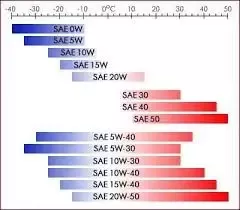Thicker oil can sometimes help reduce engine noise, but it’s essential to understand the trade-offs. Let’s explore:
- Viscosity:
- Thicker oil (higher viscosity) provides better cushioning between moving parts.
- It can dampen noise caused by metal-to-metal contact.
- However, excessively thick oil can strain the oil pump and reduce overall efficiency.
- Benefits:
- Thicker oil may quiet lifter noise, especially in older engines.
- It can improve lubrication under high loads or extreme temperatures.
- Considerations:
- Follow the manufacturer’s recommendations for oil viscosity.
- Thicker oil may affect fuel efficiency and cold-start performance.
- Cold weather can make thick oil flow poorly, causing startup noise.
- Balance:
- Opt for the right balance between viscosity and noise reduction.
- Regular oil changes with the correct oil type are crucial.
Remember that individual engines vary, and what works for one may not be ideal for another. Consult a mechanic if you’re experiencing persistent engine noise.
Read More: How Can I Improve My Engine Noise?


